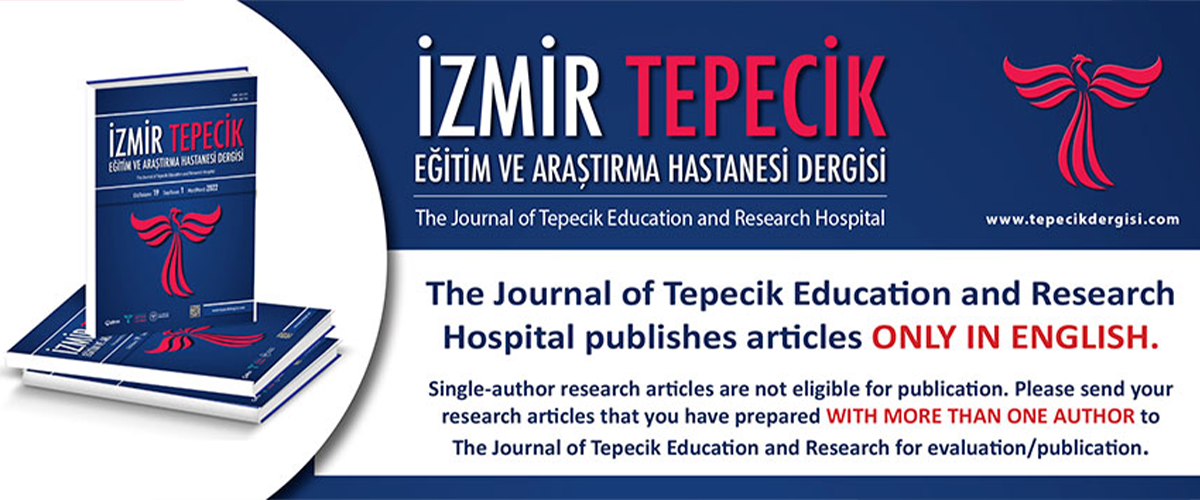








Surgeons’ Approach to Preoperative Antibiotic Prophylaxis
Müge Özgüler1, Hüseyin Esin2, İbrahim Murat Özgüler3, Şükran Köse41Elazığ Fethi Sekin City Hospital, Clinic of Infectious Diseases and Clinical Microbiology, Elazığ, Turkey2University of Health Sciences Turkey, İzmir Tepecik Education and Research Hospital, Clinic of General Surgery, İzmir, Turkey
3Fırat University Hospital, Clinic of Cardiovascular Surgery, Elazığ, Turkey
4University of Health Sciences Turkey, İzmir Tepecik Education and Research Hospital, Clinic of Infectious Diseases and Clinical Microbiology, İzmir, Turkey
Objective: The surgical site infection (SSI) is one of the most common healthcare-associated infections in hospitalized patients. However, the most important factor in reducing SSIs is the appropriate selection of antimicrobial prophylaxis. Our aim was to evaluate the surgeons’ attitudes toward preoperative antimicrobial prophylaxis.
Methods: A set of questions were organized on Google Docs’ form by creating a survey to determine the surgeons’ preoperative surgical prophylaxis approaches. Survey links were delivered to the surgeons online. Their answers were recorded on the Google Questionnaire and analyzed with Microsoft Excel and SPSS 15.
Results: A total of 111 surgeons participated in the study. Forty nine of the surgeons (44.1%) stated that they did not receive preoperative antibiotic prophylaxis training. Eighty-one surgeons (73.1%) stated that they used preoperative antibiotic prophylaxis to prevent surgical site-related morbidity. It was determined that 94 surgeons (84.7%) used cefazolin for antibiotic prophylaxis. In case of allergy to cefazolin, ciprofloxacin was the antibiotic preferred by 40 surgeons (36.7%). Fifty-two of the surgeons (46.8%) applied the antibiotics they used for prophylaxis only for 24 h. Seventy one of the surgeons (64%) said that they were informed on SSI surveillance by the Infection Control Committee in their hospitals and 40 of them (36%) stated otherwise.
Conclusion: The results of the study indicate that all physicians in surgical branches should be informed about the importance of preoperative antibiotic prophylaxis and the application recommendations of the guidelines.
Manuscript Language: English
(449 downloaded)




